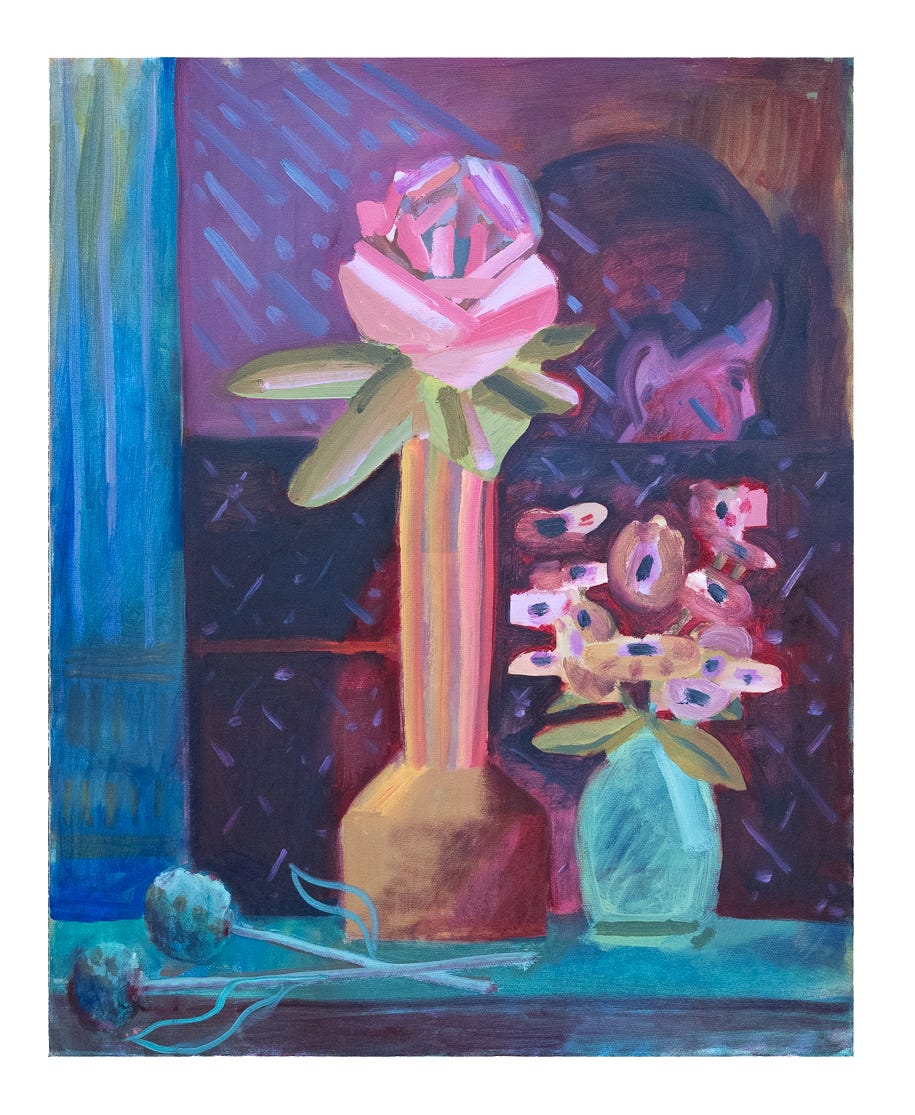Legacy
An essay by Gerry Wilson on her proud and indomitable north Mississippi grandmother, with art by Victoria Meek
The copyright date on the little leather-bound book is 1925. It contains pointers on business and Constitutional law, postal information, interest calculation, cleaning tips, weights and measures, “How to Prevent Fires,” maps of the United States and the world, the complete 1920 census for all U.S. cities over 10,000 population, blank calendar pages.
The book might have been a business token given to my maternal granddaddy, but my grandmother filled its pages with recipes written in pencil. Sometimes she wrote sideways and upside down to make use of every bit of space. My grandmother was frugal. She had to be. The ledger is a testament to hard times and to her indomitable spirit.
During the Great Depression years, when she kept a cow and chickens in the lot behind the house, she used the book as a ledger where she kept track of the milk, cream, and eggs she sold to neighbors.
Mosebys, 1 gal milk, 15 c
Purdons, 1 lb butter, 35 c
Hydes, 1 doz eggs, 25 c
My grandmother was a proud woman. She wouldn’t like you to know that she only completed the eighth grade, but it was the best education available to her, living out in the country in north Mississippi in the early part of the 20th century. I wonder what it cost her to rise in the dark to milk the cow and gather eggs, to churn butter to peddle to her neighbors, to dig and hoe and sweat in the garden, dirt permanently embedded under her fingernails? She never talked about those times, and I never asked—a thing I regret immensely. The little book is the only evidence I have of those hard times.
What kind of future had she envisioned when she married my granddaddy a month after he came home from France in 1919? Surely not his debilitating tuberculosis, long illness, and early death. Not forty-five years of survival without him. Not the backbreaking work, the weathered skin, the failing heart.
I am the only child of an only child. My parents, my mother’s parents, and I lived together in a little brick house far too small for us. The dynamic of that household puzzles me still. I called my mother “Mother” and my grandmother “Mama,” as though I had two mothers. When my granddaddy became an invalid in his last years, caring for him became my grandmother’s singular passion, something she did with unflagging energy and devotion. I remember him, sitting up in bed, smoking his Lucky Strikes in spite of having only one lung, listening to baseball games on his radio. When he died—I was ten—my grandmother turned inward. She became sad, bitter, and difficult.
Keep reading with a 7-day free trial
Subscribe to Rooted Magazine to keep reading this post and get 7 days of free access to the full post archives.


